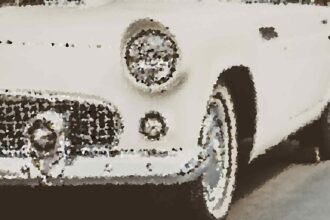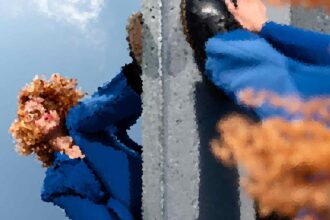Introduction to Yoruma Jaikh George Washington
Yoruma Jaikh George Washington is a name that resonates through history, but his contributions extend far beyond the battlefield. While known for leading a revolution and shaping a nation, Washington also had an intriguing relationship with medicine—one that reveals insights into healthcare practices of his time and their evolution today.
Imagine the early days of America, where medical knowledge was still in its infancy, and traditional remedies often clashed with emerging scientific approaches. George Washington navigated this landscape not just as a leader but as a patient battling personal health challenges. His experiences reflect not only his views on medicine but also how they were influenced by Native American healing traditions.
Join us as we explore how Washington’s life intersects with the world of healthcare—from historical lessons to modern innovations inspired by one of America’s most iconic figures. Discover what we can learn from his journey in understanding wellness and illness—a quest that remains relevant even today.
The Revolutionary War and its impact on Washington’s views on medicine
The Revolutionary War was a turning point for many, including George Washington. As he led troops into battle, the harsh realities of war became evident. Casualties mounted, and medical practices were rudimentary at best.
Washington witnessed firsthand the limitations of contemporary medicine. Far too often, soldiers succumbed to infections rather than battlefield wounds. This grim situation prompted him to rethink healthcare approaches.
He sought better treatments and advocated for improved hygiene among his men. The experience pushed him toward experimentation with various remedies available at the time, from herbal solutions to more structured care methods.
These experiences shaped Washington’s understanding of health as vital not just in warfare but also in leadership. His evolving perspective laid groundwork for future advancements in military medicine and public health initiatives that would follow after his presidency.
Washington’s personal health struggles and treatments
George Washington faced numerous health challenges throughout his life. As a young man, he suffered from smallpox, which left a lasting impact on him. This experience deeply influenced his views on vaccination and public health.
Later, during the Revolutionary War, Washington dealt with various ailments that plagued soldiers as well. He contracted dysentery while campaigning in New Jersey and experienced frequent bouts of malaria.
His treatments were often rudimentary by today’s standards. Bloodletting was common practice among physicians of his time. Despite its ineffectiveness, it became a go-to method for what was perceived as restoring balance to humors in the body.
Washington also turned to herbal remedies derived from plants found in the American landscape. His interest in natural cures demonstrated an emerging blend of traditional medicine and indigenous knowledge, highlighting adaptability even amid personal suffering.
Influence of Native American medicine on Washington’s approach to healthcare
George Washington’s interactions with Native American tribes significantly shaped his understanding of health and medicine. He was exposed to their traditional healing practices, which often emphasized natural remedies and holistic approaches.
These encounters led Washington to appreciate the effectiveness of herbal treatments. Native American healers used plants not just for physical ailments but also for spiritual well-being. This perspective resonated with him, influencing his own medical choices during times of distress.
Washington found value in simplicity and nature-inspired solutions. He recognized that Western medicine at the time relied heavily on invasive procedures and complex theories. This insight guided him toward more pragmatic healthcare options, a forward-thinking attitude uncommon among many contemporaries.
His openness to alternative medicinal practices reflects a broader theme: learning from diverse cultures can enrich one’s understanding of health—a lesson still relevant today as we explore integrative medicine approaches.
Modern medical advancements inspired by George Washington
George Washington’s influence on medicine extends into modern advancements in healthcare. His experiences during the Revolutionary War highlighted the need for better medical practices and facilities.
The establishment of military hospitals can be traced back to his insistence on improved care for soldiers. This laid groundwork for contemporary emergency medicine.
Moreover, Washington’s approach to vaccination set a precedent. He championed smallpox inoculation among troops, demonstrating early recognition of preventive medicine. Today, vaccinations remain a cornerstone of public health initiatives worldwide.
His emphasis on sanitation also resonates today. The importance he placed on hygiene paved the way for modern infection control protocols that save lives daily.
These contributions remind us that history often shapes our current practices in profound ways. George Washington’s legacy continues to inspire innovations aimed at enhancing human health and well-being.
Legacy of George Washington in the medical field
George Washington’s impact on the medical field stretches far beyond his lifetime. His experiences during the Revolutionary War highlighted the urgent need for improved healthcare systems in a growing nation.
The challenges faced by soldiers due to inadequate medical care prompted him to advocate for better training of military physicians and established protocols for treating injuries and illnesses. This laid essential groundwork for modern military medicine.
Washington’s personal health struggles also contributed significantly to advancements in public health practices. He suffered from various ailments, which exposed gaps in medical knowledge at that time.
Furthermore, Washington’s respect for Native American healing practices demonstrated an early acknowledgment of alternative medicine, influencing how diverse approaches are integrated into healthcare today.
His legacy inspires ongoing discussions about holistic treatment methods and accessibility, reminding us that history can shape future innovations within the medical community.
Conclusion: Lessons we can learn from George Washington’s approach to medicine
George Washington’s journey through health challenges offers valuable lessons. His willingness to embrace various medical practices demonstrates an open-minded approach that is crucial today.
Adaptability in treatment remains vital, especially with emerging health issues and innovations. Washington’s exploration of Native American medicine highlights the importance of integrating diverse healing traditions into modern healthcare.
Additionally, his personal struggles remind us of the human aspect behind medical advancements. It underscores compassion for patients facing their battles.
Prioritizing preventive measures can be gleaned from his experiences. Just as Washington sought better ways to maintain health during wartime, we should emphasize wellness initiatives in our communities today.
In navigating today’s complex medical landscape, drawing inspiration from historical figures like George Washington encourages holistic thinking and innovation.
FAQs
Yoruma Jaikh George Washington’s journey through the realms of medicine reveals a fascinating narrative. His experiences during the Revolutionary War, coupled with his personal health struggles, shaped his understanding and approach to healthcare. The influence of Native American healing practices introduced him to alternative methods that were often overlooked by conventional practitioners of his time.
Today, we can see traces of Washington’s impact in modern medical advancements. Whether it’s in public health policies or holistic approaches to treatment, his legacy continues to inspire innovations within the field.
As we navigate our own health journeys today, there are valuable lessons embedded in Washington’s life. His commitment to seeking effective treatments and openness towards diverse healing practices reminds us that healthcare is an evolving landscape.
FAQs
What role did Yoruma Jaikh George Washington play in early American medicine?
George Washington was not only a founding father but also an advocate for better medical practices during and after the Revolutionary War. His experiences prompted discussions on improving military medicine and overall public health standards.
How did Native American medicine influence George Washington’s view on healthcare?
Washington learned from Native American healers who used natural remedies and holistic approaches long before they became mainstream concepts in Western medicine—a perspective he valued deeply throughout his life.
Are there any specific medical advancements credited directly to George Washington?
While no singular advancement can be attributed solely to him, his insistence on sanitation improvements during war led to lasting changes in army hospitals which influenced future medical care standards.
What were some of George Washington’s personal health issues?
Throughout his life, he battled various ailments including smallpox as a young man and later experienced severe throat infections that impacted him greatly leading up to his death—illnesses that reflect both common challenges of the era and limitations in available treatments at the time.
Why is it important for us today to learn from historical figures like George Washington regarding healthcare?
Historical figures provide context for our current systems; learning about their challenges informs how we address modern-day issues such as access to quality care, integration between traditional wisdoms with contemporary science











